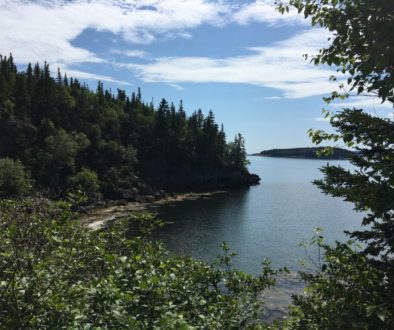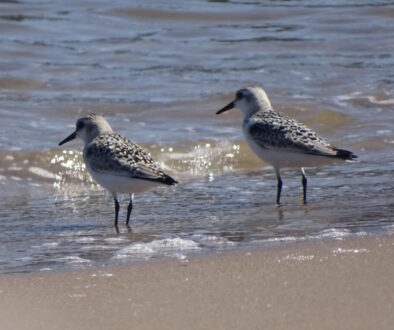Parks groups concerned about potential harm to Mount Carleton by proposed snowmobile trail
A plan to widen a walking trail up the Maritimes’ highest peak and open it for snowmobile use within New Brunswick’s only designated Wilderness Park has the Canadian Parks and Wilderness Society, New Brunswick Chapter (CPAWS NB) and the Friends of Mount Carleton Provincial Park deeply concerned.
“We’ve recently learned about this trail proposal for Mount Carleton, which is part of a plan for increasing snowmobile trails in northern New Brunswick. The government appears to be ready to agree to this proposal without an environmental analysis or any public consultation. It would see a walking trail up Mount Carleton cleared to double its width to 12 feet wide, and the canopy over it removed to a height of 12 feet,” says Roberta Clowater, Executive Director of CPAWS NB.
“This type of development will fragment the habitat of wildlife species including moose, flying squirrels, and American marten. Sustained motorized access on this trail is also likely to compact the soil, causing fast rain runoff and erosion. Grooming the trail will encourage increased motorized vehicle access that could lead to them continuing up to the fragile mountain top. This is completely inappropriate within a designated wilderness park,” adds Clowater.
“For over eight years, the Friends of Mount Carleton Provincial Park Inc. has worked diligently to promote, preserve and protect the Park’s natural wilderness setting and its ecosystems. We have worked to develop, what we thought, was a good working relationship with the Department of Tourism, Heritage and Culture. The snowmobile hub infrastructure announcement came without any forewarning or consultation with our group,” says Susan Mulherin, President of Friends of Mount Carleton Provincial Park Inc.
“The Friends are committed to working cooperatively with the Department, while also ensuring that stewardship of the Park is maintained, and the protection of the environment, animal habitat and heritage is reflected in all policies and programs. We are concerned that in this case, that is not happening. Surely a compromise can be found that respects our protected areas and meets snowmobilers interests,” adds Mulherin.
No Public Discussion Whether Snowmobile Trail is Compatible with Wildest Parts of Wilderness Park
Mount Carleton park is New Brunswick’s only “Wilderness Provincial Park”, having been classified as such in revisions to the Parks Act in 2014. Those same revisions mandated the Department of Tourism, Heritage and Culture to develop Resource Management Plans for the provincial parks, outlining the recreational uses that would be compatible with conservation of the park natural areas.
“We are very concerned that the Department would consider making an irreversible decision such as this before the Resource Management Plan and the associated zoning are discussed publicly and approved. The Department is poised to, by default, decide that motorized vehicles are allowed in conservation zones in a wilderness park, setting a precedent from which it will be hard to back away.
“Allowing motorized recreation in one of the wildest parts of a wilderness park is inconsistent with how wilderness zones are generally managed in this level of park across Canada and the US. If the trail that goes up Mount Carleton is groomed for use by snowmobiles, it will prevent its use by people who want a wilderness experience of snowshoeing or cross-country skiing in that part of the park,” says Clowater.
“It’s important to tourists who are attracted to wilderness that the marketing of Mount Carleton Provincial Park as a wilderness destination be backed up with management that is consistent with a wilderness experience,” adds Clowater.
“This is one of the first tests of the revised Parks Act, which our organization has been applauding as a good step forward for the modernization of New Brunswick’s approach to parks management. If this trail is approved with no public engagement process or environmental analysis, in our view the government will have failed this first test of our new legislation,” adds Clowater.
CPAWS is recommending that the provincial government take the time to assess the potential impacts of this proposal, undertake public and stakeholder consultations, and then determine whether Mount Carleton is an appropriate location for such a development.


